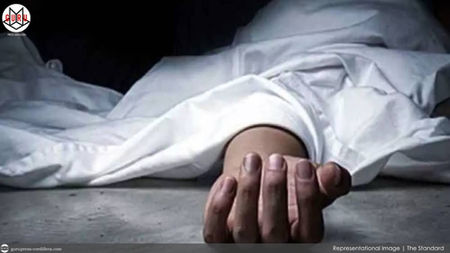P500M Allocated for Modern Rice and Corn Center in Kalinga Province
Tabuk City, Kalinga — The Philippine Rural Development Project (PRDP) has allocated ₱500 million to Kalinga Province for the establishment of a Modern Rice and Corn Center aimed at boosting agricultural productivity and improving farmers’ income in the Cordillera region. The project seeks to strengthen the province’s role as a major grains producer by enhancing post-harvest facilities, improving market access, and promoting value-chain efficiency for local rice and corn farme

Lorraine Bacullo
52 minutes ago2 min read


‘Nu kailangan nga agpa-escort ti police dagitoy nga traders ket isu ti aramiden tayo,’ – Gov. Edduba on threats against outside rice traders coming to Kalinga with higher buying price
Tabuk City, Kalinga – Amid concerns over unfair pricing and market access, Governor James S. Edduba said that if reports are true that there are threats against palay buyers from outside the province who intend to purchase the rice produce of Kalinga farmers at higher prices, he will request police escorts for them. The governor made the statement during a farmers’ forum held on Monday, October 27, at the Capitol Gymnasium in Bulanao, attended by various rice and corn farmers

Lorraine Bacullo
1 hour ago2 min read


Cagayan Valley among potential drop zones of debris from China’s rocket launch – CVDRRMC warns public
Cagayan Valley, Philippines – Cagayan has been identified as one of the potential drop zones for debris from China’s Long March 5 rocket launch, prompting the Cagayan Valley Disaster Risk Reduction and Management Council (CVDRRMC) to issue a warning to residents—particularly those in coastal and island areas—to stay alert and avoid any unidentified objects that may fall or wash ashore. Among the identified debris drop zones within Philippine waters are Camiguin Norte in the B

Lorraine Bacullo
2 hours ago2 min read


Two dead after motorcycle hits parapet and falls into 30-meter ravine in Tuba, Benguet
Tuba, Benguet – Two individuals, a 33-year-old man and a 33-year-old woman, died after the motorcycle they were riding fell into a ravine in Tuba, Benguet, on Wednesday morning, October 29, 2025. The victims were identified by the police as Dennis B. Corpuz, a driver and resident of Ungab, Cuyapo, Nueva Ecija, and Maricar Abadidas Gilo, of Holy Ghost Extension, Baguio City. According to a local media report, the victims were heading toward La Union when the accident occurred

Mark Moises Calayan
2 hours ago1 min read


‘Mahalaga na suportahan ang ating mga magsasaka dahil kayo ang nagpapakain sa ating lahat’- Sen. Pangilinan assures Kalinga farmers of support in their appeal to repeal RTL
Tabuk City, Kalinga — “Ang trato natin sa mga magsasaka, dapat parang trato natin sa ating mga magulang dahil sila ang nagpapakain sa atin,” said Senator Francis “Kiko” Pangilinan in his message to the farmers of Kalinga who continue to call for the repeal of the Rice Tariffication Law (RTL), which they say has adversely affected their livelihood. Pangilinan’s message was delivered through a recorded video during the Farmers’ Forum held on October 27 at the Kalinga Astrodome.

Mark Moises Calayan
2 hours ago2 min read


Body of missing Bontoc road mishap victim finally found and retrieved
Bontoc, Mt. Province — The last victim of the tragic road mishap in Bontoc, Mt. Province, on Monday, October 27, was finally found but lifeless after three days of search and rescue operations. It can be recalled that the truck ferrying five occupants fell into a deep ravine and into the Chico River. According to police reports, the victims were all construction workers aboard an Elf truck bound for a construction site in Sadanga when the vehicle reportedly hit two parked car

Mark Moises Calayan
1 day ago2 min read


‘Nu nababa iti viral load ket haan makaakar’ – KPH Dr. Astudillo explains why getting tested for HIV and seeking treatment is important and should not be feared
If it were 30 to 40 years ago, Human Immunodeficiency Virus (HIV) was widely regarded as a death sentence. But today, with the availability of testing and treatment hubs for people living with HIV (PLHIV), that is no longer the case. Dr. Rilyn Grace Astudillo, Chairman of the KPH–HIV and AIDS Core Team, emphasized in an interview with GURU Press Cordillera that getting tested and seeking treatment for HIV are crucial steps in maintaining the health of PLHIV. She explained tha

Leonora Lo-oy
1 day ago2 min read


P9.4M worth of machinery and warehouse turned over to farmers’ cooperatives and associations in Paracelis, Mt. Province
Paracelis, Mt. Province – To uplift the livelihood of local farmers and strengthen the region’s agricultural sector, the Department of Agriculture – Cordillera (DA-CAR) has provided over ₱9.4 million worth of farm machinery and a corn warehouse to nine farmers’ cooperatives and associations (FCAs) in Paracelis, Mountain Province. According to a report from the DA-CAR, among the FCAs that received the assistance were the Talaktak Farmers Association, Inc. and the eBalangao Mak

Mark Moises Calayan
1 day ago2 min read


25-year-old found dead inside machine shop in Isabela; co-worker says the dead man habitually drank over 5 bottles of energy drink daily
Cauayan City, Isabela – A 25-year-old man was found dead inside the machine shop where he worked, allegedly after habitually consuming excessive amounts of energy drinks. According to a police report obtained by XFM Santiago, the Cauayan City Police Station received a phone call from a concerned citizen around 8:00 a.m. on October 28, reporting the discovery of a man’s body inside a machine shop in Purok 2, Minante 2, Cauayan City. The victim, identified only as “Mel” for pri

Mark Moises Calayan
1 day ago1 min read


Tinglayan VM Malasi says Sangguniang Bayan fully supports Abay’s commitment to transparent and inclusive governance
Tinglayan, Kalinga – The legislative council of the Municipal Government of Tinglayan affirmed its continued and harmonious working relationship with the executive branch, expressing full support for Mayor Charles Abay in his pursuit and commitment to sustaining a transparent, inclusive, and progressive municipality. Vice Mayor Alexander Malasi delivered the message of support on October 20, during Mayor Abay’s presentation of his administration’s accomplishments in his first

Tinglayan LGU
1 day ago1 min read


Kalinga joins search for one remaining missing victim of Bontoc vehicular tragedy
Bontoc, Mt. Province— The search and retrieval operation for the remaining missing worker from a truck that fell into the Chico River in Bontoc, Mt. Province, on October 27, is ongoing. The Provincial Government of Kalinga, under the leadership of Governor James S. Edduba, has joined the mission this October 29 to help locate the victim. According to the Facebook page of Governor Edduba, the Provincial Disaster Risk Reduction and Management Council (PDRRMC), led by PDRRMO Chr

Mark Moises Calayan
2 days ago2 min read


FOUR barangays in Santa Marcela, Apayao conferred with prestigious SGLGB awards at 34th Local Government Month Regional Ceremony
Santa Marcela, Apayao — The Municipality of Santa Marcela, Apayao, earned multiple Seal of Good Local Governance for Barangay (SGLGB) recognitions during the 34th Local Government Month Regional Commemoration and Awarding Ceremony held on October 23, 2025, at the Newton Plaza Hotel Convention Center in Baguio City, highlighting the municipality’s excellence in governance and community service. The four barangays conferred with the awards were Barocboc, Malekkeg, Panay, and Sa

Lorraine Bacullo
2 days ago2 min read


FEATURE: 19 HIV patients benefit from treatment hub at Balay Lumin-awa in Kalinga to continue living normal lives; Dr. Astudillo says they are always ready to help
Tabuk City, Kalinga — Now on its first year of providing treatment to people living with human immunodeficiency virus (PLHIV), Balay Lumin-awa in Kalinga continues to help patients live normal, healthy lives, with 19 individuals currently enrolled at the hub. Established in September 2025, Balay Lumin-awa, located at the Kalinga Provincial Hospital in Bulanao, Tabuk City, serves as the province’s official treatment hub for people living with HIV. In an interview with Dr. Rily

Leonora Lo-oy
2 days ago2 min read


“In government, when something is prone to abuse, it would surely be abused” – Atty. Comafay on proposed issuance of credit cards to Tabuk City officials
Tabuk City, Kalinga — Attorney Errol Comafay expressed his concerns on social media regarding the proposal to issue credit cards to Tabuk City officials for official transactions. In a now-deleted post by the Tabuk City Public Information Office, it was reported that representatives from the Land Bank of the Philippines proposed issuing credit cards to selected city government offices to cover official fuel, accommodation, and transportation expenses. The post drew numerous c
Mark Jordan Bomogao
3 days ago1 min read


Man in Abra who couldn’t move on from ex-partner kills her mother and brother
Abra, Philippines — A security guard from La Paz, Abra, who allegedly could not move on from his ex-partner, killed the latter’s mother and brother in Piddig, Ilocos Norte, on Sunday afternoon, October 26, 2025. According to the Piddig Police, the 37-year-old suspect was arrested by a patrolling team after officers saw him carrying a firearm while riding a black Honda Beat motorcycle. Upon inspection, police discovered that the suspect was in possession of an unlicensed Calib

Leonora Lo-oy
3 days ago2 min read

.png)












%20(2).png)






















































Comments